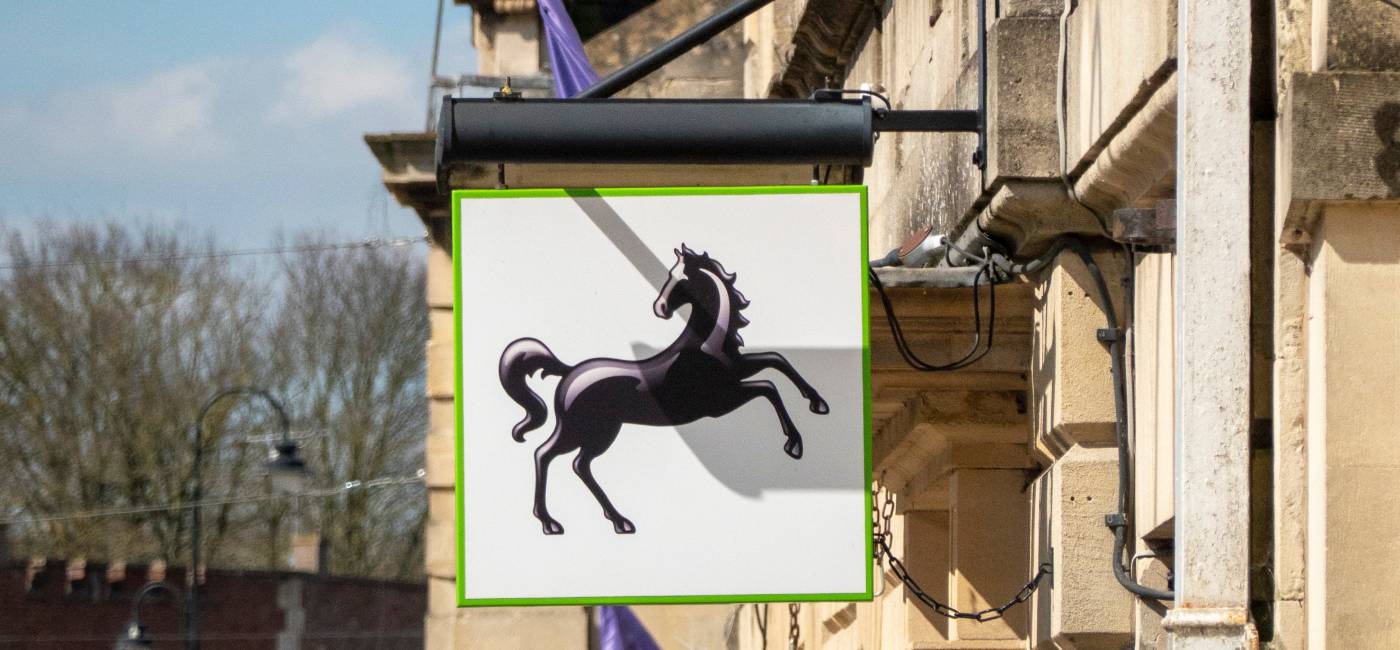
This article is for general guidance only and is not financial or professional advice. Any links are for your own information, and do not constitute any form of recommendation by Saga. You should not solely rely on this information to make any decisions, and consider seeking independent professional advice. All figures and information in this article are correct at the time of publishing, but laws, entitlements, tax treatments and allowances may change in the future.
Do you prefer a high street bank, or have you moved online? Or perhaps you like a mix of both?
As Lloyds Banking Group announces more branch closures, you might be wondering whether high street banks still offer value. Or could an online bank or “challenger bank” (the name often given to smaller, usually online-only banks) be a better option?
What’s on this page?
People in the UK are more likely to bank with a range of institutions, and more likely to switch banks, than those in many other European countries. But there’s a generational divide – we get much more reluctant to switch as we get older. A recent survey by accountancy firm KPMG found that 17% of people (nearly one in five) said they’d switched bank accounts in 2024.
Meanwhile research by consultancy Kearney found that UK customers are more likely to switch their main current account than the European average. We’re also more likely to have relationships with multiple banks – 63% of us do, whereas on average in Europe, 55% of people only bank with one provider. (At the extreme end, in Austria, 77% of people use only one financial services provider.)
But the flexibility shown by British customers appears to disappear as we get older. The KPMG survey found that among those 65 and older, just 4% (one in 20) had switched banks in the last year. Nearly one in four (39%) people aged 65 and over say they plan to never switch banks, and almost half (49%) of people over 65 stated that nothing would make them consider moving their main source of income to a non-high street bank account.
Yet younger Brits are the among the most likely in Europe to embrace digital banks. The Kearney research found that one in three people (33%) have an account with a digital-only bank, above the European average of one in four (25%). With the biggest names in high street banks closing at a rate of knots, is the loyalty of over-65s misplaced – and should you look at alternatives?
Banks and building societies have closed 6,266 branches since January 2015, according to consumer group Which?, at a rate of around 53 each month. In another blow to the UK high street, Lloyds Banking Group announced in January it is set to shut 136 branches across its Halifax, Lloyds and Bank of Scotland between May 2025 and March 2026.
This includes 61 Lloyds Bank branches, 61 Halifax branches, and 14 Bank of Scotland branches. This is on top of the 102 closures Lloyds Banking Group already had scheduled for 2025. Transactions across the closing branches fell by an average of 48% over the past five years as customers increasingly used its mobile app for payments, Lloyds said.
After the closures, Lloyds will have just 386 branches, Halifax will be down to 281 branches and Bank of Scotland to 90 branches. Three-quarters of older people want to carry out at least one branch-based transaction each week, according to a report by Age UK.
Many more were concerned about online banking and getting help with money matters if their branch closed. Martyn James, a consumer rights expert, says it’s not just about access to cash. “Older people have made it clear that being able to get face to face help with banking problems is essential.”
More than 100 “banking hubs” have opened around the UK and the government has set a target to roll out 350 hubs by 2029, with 230 expected to be open by the end of next year. Cash Access UK, a not-for-profit company set up to protect access to cash and funded by 10 major banks, has set up the hubs and says they are proving “extremely popular”.
The banking hubs are run by the Post Office and allow customers of all major banks to carry out face-to-face cash transactions. They usually also offer a “community banker” service where representatives from different high street banks come in once a week to support customers with more complex issues they have. James Daley, managing director at Fairer Finance, says: “That could mean helping people use online banking, or sorting out admin queries such as account closures or the ordering of a new card. While digital banks offer all of these, it’s the security of face-to-face services that is important to many.”
Digital banks and e-money institutions have lower overheads, so they can often offer better rates and deals. High street banks tend to offer much lower savings rates. Rachel Springall, finance expert at comparison website Moneyfacts, says: “We do find challenger banks tend to work faster in passing on rate rises to savers.”
A Which? survey last month found that all the top interest rates come from lesser-known brands. And high-street banks were particularly uncompetitive when it came to easy-access accounts. Where there are “best buy” accounts from well-known names (including building societies), they are usually for accounts that must be opened and operated online.
This has been a growing trend, and the percentage of easy access accounts that do not offer branch access has grown to 42%, up from 29% a decade ago, according to Moneyfacts. Springall says: “Those savers who prefer to manage their account in-branch and save their money with one of the biggest high street banks will be sacrificing the interest they earn on their savings.
“Indeed, savers could be earning as little as 1%, or on average just under 3%, but in fact they could earn almost 5% on the top easy access accounts.” So it’s always worth shopping around.
As well as looking for a top rate, it’s worth looking out for consistency – does the institution have a track record of good rates, or is the rate likely to drop after an initial splash of publicity in the best buy tables? Of course, if it’s a fixed-rate account you know what you’ll be getting for the term of the fixed rate.

In most cases, online banks are just as safe and regulated as high street banks, and offer many of the same services – from savings to investments, mortgages and loans. Starling and Monzo, for example, are part of the new breed of digital banks that are fully regulated.
Revolut, on the other hand, which describes itself as an “all-in-one finance app” has received a UK banking licence with restrictions, but has not yet launched as a bank. This means that your money with Revolut is not protected by the Financial Services Compensation scheme – instead it is held in a ringfenced account. Although if it's a Revolut savings account, the company says that money in its savings accounts is held with partner banks, which do have FSCS protection.
Monese is another example of an e-money institution that doesn’t have the same regulation and deposit protection as a UK bank. So it’s always worth checking where your money is being held.
Martyn James says: “One key factor is ensuring the business is regulated in the UK, just in case something goes wrong – whether they are protected by the Financial Services Compensation Scheme and you can go to the Financial Ombudsman.”
Use the Financial Conduct Authority’s Financial Services Register to check if a company is authorised. If you’re unsure whether your money would be protected, you can check with the Financial Services Compensation Scheme.
In most cases, the difference is not really about what’s available, but how it’s delivered. Purely digital banks don’t have branches. All business is conducted online, usually on a mobile app, or via the telephone.
This doesn’t work for everyone. Daley says: “Many of the transactions that are carried out at the branch counter are fairly simple – paying in cash and cheques and making cash withdrawals – but the face-to-face service is essential for these customers.
“During the pandemic, many customers who had relied on branches did make the switch to digital. But there’s still a significant minority that rely on face-to-face services.” Banking online or with an app doesn’t necessarily mean worse customer service – in fact many online-only banking brands score well in customer service polls.
Ultimately, it comes down to your preferences – as long as you’re aware that your choices can have an impact on your finances. You might prefer to manage your money in-branch for accessibility reasons, but if you could add an online savings account into the mix, you could get a better return on your money.
Daley says: “For those that do stick with the high street banks, it’s usually worth having at least one account open with a specialist savings provider that can offer you a better rate.”
These questions can be useful to consider:





Delays in HMRC tax letters plus higher interest rates mean savers are at risk of surprise bills

Beginner's guide to investment types: Shares, funds, ETFs, and trusts demystified
